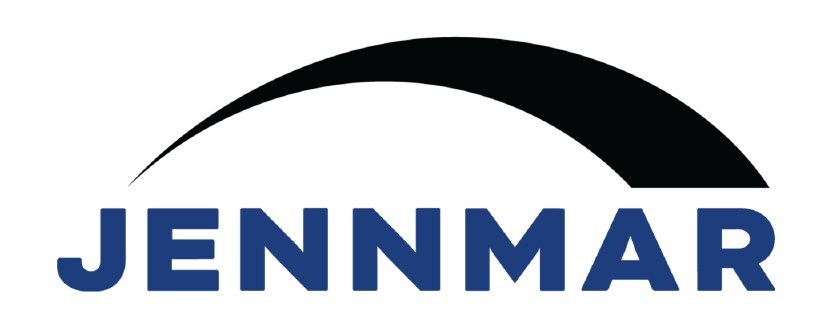The billion-dollar standoff: Alamos Gold versus Türkiye
An important mining dispute is playing out in The International Centre for Settlement of Investment Disputes (ICSID), which is considered to be the world’s leading institution devoted to international investment dispute settlement. It has administered the majority of all international investment cases.
Almost all member states of the U.N. have agreed that ICSID should serve as the forum for investor-State dispute settlement — and they have encoded this into most international investment treaties, as well as in numerous investment laws and contracts. As of today, 165 countries have signed the ICSID Convention, with 154 of these having ratified it, thereby becoming contracting member states
This dispute’s claimants are Alamos Gold Holdings Cooperatief U.A. and Alamos Gold Holdings B.V., two Dutch-incorporated subsidiaries of Alamos Gold Inc. (TSX, NYSE: AGI).
Alamos is a Canadian-based intermediate gold producer with diversified production from operating mines in North America. This includes the Young-Davidson and Island/Magino Gold mines in northern Ontario, and the Mulatos mine in Mexico’s Sonora State. Additionally, the company has a significant portfolio of development stage projects in Canada, Mexico, and the U.S. Alamos employs approximately 2,400 people.
At the centre of this dispute is Alamos’ view that the actions of the Turkish government constituted “expropriation and unfair and inequitable treatment.” The claim, as filed under the Netherlands-Türkiye Bilateral Investment Treaty, is expected to exceed US$1 billion, which is the sum representing the value of the company’s Turkish gold mining project.
This dispute’s respondents are Türkiye’s Ministry of Energy and Natural Resources and the Directorate-General of Law and Legislation in the national government’s Department of Administrative Affairs.
Alamos and the subsidiaries started working in Türkiye in 2010. According to the company, they “have invested over US$250 million in Türkiye, unlocked over a billion dollars’ worth of project value, and contributed over $20 million in royalties, taxes, and forestry fees to the Turkish government.”
Over the life of the project, the company says that “government revenues alone are expected to total US$551 million.” Additionally, Alamos and the subsidiaries say that they have invested US$25 million to date towards various community and social initiatives.
Despite these facts, well into construction of the Kirazlı gold mine, the government failed in October 2019 to grant a routine renewal of the company’s mining licenses. The non-renewal also extended to its licenses for both the Ağı Dağı and Çamyurt gold mines.
The company claims that various permits were granted by the Turkish government after the project earned the support of the local communities and passed an extensive multi-year environmental review and community consultation process.
According to John A. McCluskey, the company’s president and CEO, “Alamos began investing in Türkiye in 2010, warmly welcomed by the Turkish government through its foreign investment office. After 10 years of effort and over US$250 million invested by the company, we have been shut down for over 18 months in a manner without precedent in Türkiye, despite having received all the permits required to build and operate a mine. The company has worked in Türkiye to the highest standard of conduct with respect to social and environmental best practices.
Despite this effort, the Turkish government has given us no indication that relief is in sight, and they would not engage with us in an effort to renew the outstanding licenses. We are hopeful that the arbitration process will bring about the engagement that we have sought from the Turkish state, and lead to an equitable resolution to this impasse.”
As a result of their on-going conflict with the government, Alamos released a statement in 2021 that “Alamos and their subsidiaries expect to incur an after-tax impairment charge of approximately US$215 million, which will be recorded in the second quarter financial statements. The non-cash charge reflects Alamos’ and the subsidiaries’ entire net carrying value of the Turkish assets.”
Bilateral Investment Treaties (BITs) are agreements between two countries that establish the terms and conditions under which investments by individuals and companies from one country can be made in the other. These treaties are designed to promote and protect foreign investments by setting out legal protections, such as fair and equitable treatment, protection against expropriation without compensation, and free transfer of capital. BITs often include dispute resolution mechanisms, allowing investors to seek international arbitration if their rights are violated. By providing a stable and predictable investment environment, BITs encourage cross-border economic cooperation and reduce the risks associated with investing in foreign markets.
The Tribunal which was established to hear the claim is being run by its president: Ian Glick (a noted British barrister). He was appointed by both of the parties in this dispute. The following co-arbitrators have been named to help the Tribunal:
By the claimant: J. William Rowley (British, Canadian) is often appointed as arbitrator in high-profile European investment treaty cases, especially those that concern mining disputes. Alamos is represented by Torys LLP, the Canadian law firm with a team that includes John Terry and former Canadian Supreme Court Justice, The Honourable Frank Iacobucci.
By the respondent: Zachary Douglas (Australian, Swiss) has a substantial practice before international courts and tribunals as arbitrator, counsel, and expert witness. 
Gordon Feller is a freelance mining writer.
Disclaimer: The information presented in this article is for informational purposes only and does not constitute legal, financial, or professional advice. The views expressed are solely those of the author and do not necessarily reflect the opinions of the Canadian Mining Journal. Additionally, the Canadian Mining Journal assumes no responsibility for the accuracy, completeness, or reliability of the information provided, and any actions taken based on this content are at the reader’s own risk.





Comments
Jamie Kneen
Readers’ understanding of the situation would be better served if the source of conflict and the reasons for the government action were mentioned here.